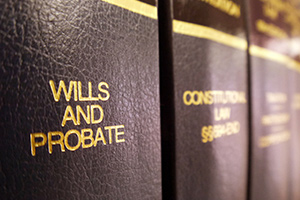
Both a will and trust are a critical part of an estate plan. Read on to learn more about each and their differences. Our skilled Montgomery County will drafting attorney is on your side. Give us a call today to get started on your estate plan.
What is a trust?
Keep in mind that trusts are a significant part of the estate planning approach. The objective of a trust is that it constructs an agreement between the estate and a third party that is in charge of the administration of the trust, known as the trustee. The trustee of a trust has a fiduciary duty to the beneficiaries of the trust. It can be challenging for a trustee to comprehend their responsibilities, particularly when encountering vocal requests from beneficiaries. Our estate lawyers counsel trustees, as to how to allocate the estate or the trust and cover themselves from claims of breach of fiduciary duty. Recognize that in the state of Maryland, if the trustee is a Maryland resident, they are subject to local taxes.
There are mainly two types of trusts that can be used in Maryland. The first, an irrevocable trust, essentially demands the grantor to revoke all of his or her rights to the ownership of the trust. As a result, the trust cannot be discontinued or altered in any way without consent from the beneficiary because the person who created it actually gives up all of their rights to the assets upon creation. On the other hand, a revocable trust can be modified or terminated by the grantor at any time, so long as the person who created it is of sound mind to handle their own affairs, without consent from the beneficiary. Our skilled Montgomery County trust attorney can help you create your trust.
What is a will?
The purpose of a will is to ensure that an individual’s assets are distributed to their preference and that they will not land in the wrong hands. When constructing a will, it is of the greatest importance to make sure that the document is valid according to the state of Maryland. The state demands that a valid will is written, signed by two witnesses in front of the testator and that it is also signed by the testator. Additionally, the testator has to be 18 years of age or older and legally capable at the time in which the document is signed.
Contact our experienced Montgomery County, Maryland firm
The attorneys at JD Katz have years of experience compassionately guiding clients in Maryland through the estate planning and administration process. Our firm also has experience with matters of elder law, business law, tax law, and litigation. For a legal team that will put your needs first, contact JD Katz today.
